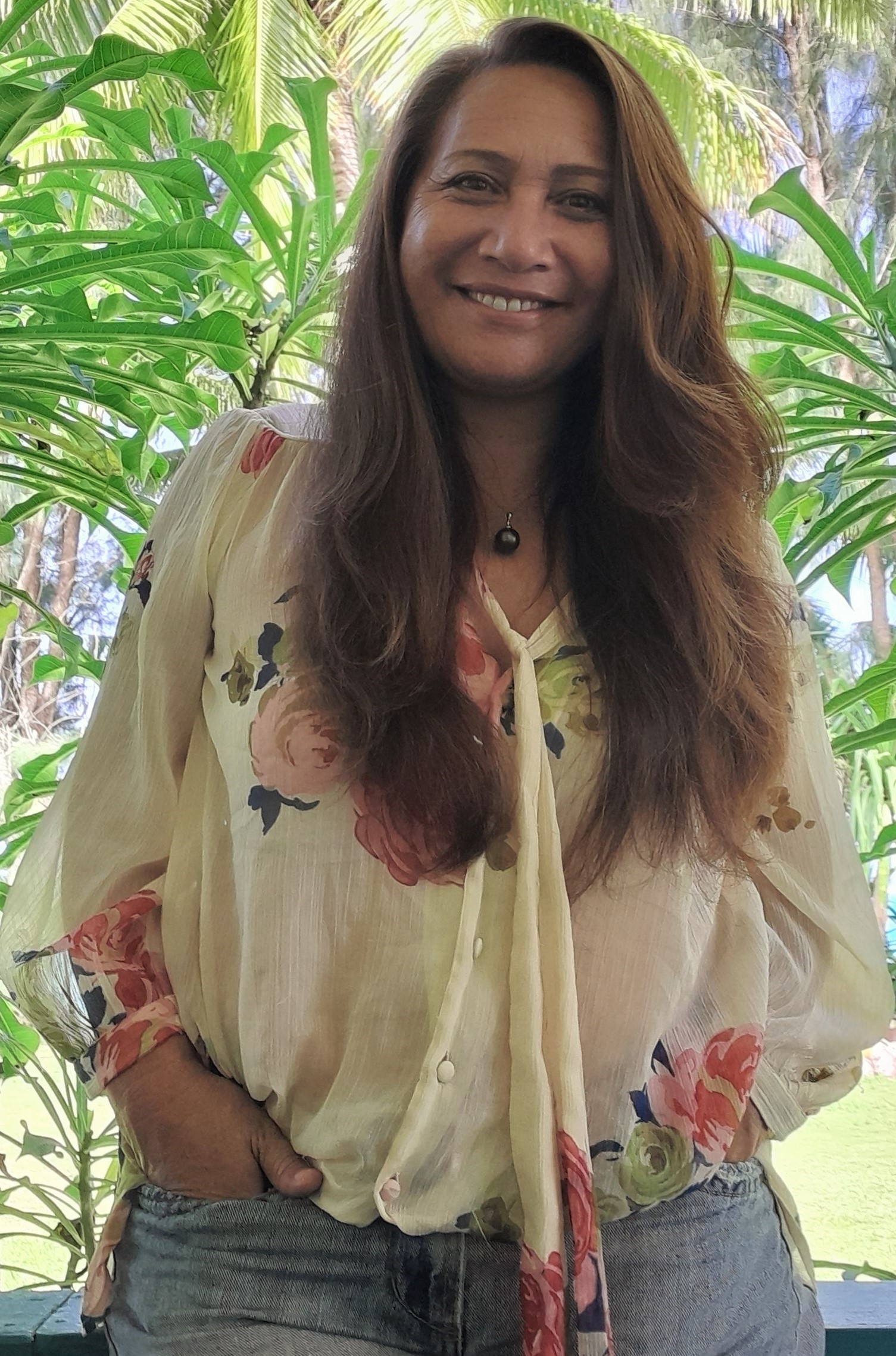Diagnosing her daughter’s dyslexia
Saturday 7 May 2022 | Written by Sian Solomon | Published in Features, Weekend

Jean Francis is the chairwoman of the recently formed Dyslexia Society in the Cook Islands. Photo: Supplied/22050641
When Jean Francis found out her daughter Jasmine was struggling to learn to read, she discovered just how challenging yet amazing the world could be for people dealing with dyslexia, writes Sian Solomon.
The mother of three was watching her young children after school when she first realised her daughter was different. She refused to read and struggled to say words, and was behind in learning compared to her peers and siblings.
‘It was a relief when she was diagnosed,” recalls Francis during a conversation about her daughter’s dyslexia. “It was such a relief because I was a ‘helicopter’ mum and I was awful.
“Back then, I couldn’t understand why she didn't, or why she couldn’t learn, because I was reading before I even went to school,” she adds.
“And so, I just couldn't understand that…and ended up being the one that had the challenge with dyslexia, not her.”
Like many parents faced with uncertainty, Francis went and sought medical guidance, read books, and studied therapies - attempting to find anything that might help her daughter with what she calls her ‘learning differences’.
Her experience was complicated by her relationship with her husband at the time, who she reveals had markers for dyslexia, and also couldn’t pronounce or say a lot of words.
“When we found out that Jasmine had dyslexia we took her to get diagnosed and we were told it was genetic, and that there was no cure,” explains Francis.
“So that’s when I changed my whole style of learning and teaching and raising her.
“Also, I was very fortunate, I guess, in that Jasmine, she didn't have that (dyslexia) as bad as a lot of other people,” she adds.
“So I knew whatever she had it wasn’t necessarily going to be a challenge for us, but was just something we needed to combat and deal with.”

With more information available to her, Francis managed to learn, teach and raise her daughter in a way that benefited her learning and special differences the most.
She says this was achieved by undergoing plenty of physical, interactive, and creative activities at home where her daughter could learn maths, reading and writing.
It was activities like cooking and putting on movies and shows where all three of her children were involved that were the most beneficial, adding that it was really important for her daughter's development and mental health.
“It’s really important to build self-esteem, and so I put her to work…and raised her concentrating on her work ethic, life skills, and organisational skills,” says Francis.’
“Because I was really concerned about her future, and what she was going to do for a career and what that would look like.
“(Also) that (type of upbringing) is what has made her who she is today,” she adds.
“I am so proud of what she has achieved… and I think every child should have that (kind of upbringing) regardless of whether they have learning differences or difficulties.”
Francis shares that caring for someone with a disability can be a relationship defined by duality.
She adds that you can love your child and respect their unique outlook while wanting to help them through life, by providing the support they need to express themselves and live independently.
With that in mind, she reveals that in her experience with the learning differences of her daughter, as well as her personal involvement which has led her to help create the Cook Islands Dyslexia Society, the greatest need for any community is public awareness.
She adds that the most difficult message to get across is that learning disabilities are not the same as sub-average intelligence.
''There is no correlation at all,'' says Francis. “Children and people with dyslexia are not dumb, which is the main thing we (the recently formed Cook Islands Dyslexia Society) want the community to be aware of.
“Also we want to build awareness, and Jasmine’s problem led me to understand that parents must have their children tested and they need help, because then you know how you can deal with the problem.
“(Also) the success of the Cook Islands Dyslexia Society is because the people we’ve approached have been so supportive of what we have been doing, and I think the more we talk about it, and the more information we get out the faster we can help.”














































